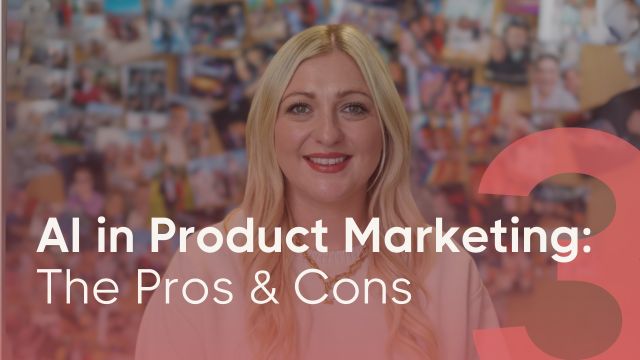
Upload Your CV
Send us your CV and a member of the team will be in touch to discuss open opportunities with you.
Marketing strategies are changing everywhere thanks to artificial intelligence. To understan...

Marketing strategies are changing everywhere thanks to artificial intelligence. To understand its impact within product marketing, we held a roundtable event with leaders in the sector. This article recounts the key topics.
On Wednesday 5th February 2025, technology marketing recruiter, Laura McManus, hosted a roundtable event for Product Marketing leaders. They came together to explore the impact of artificial intelligence in the sector, discussing:
Keep reading to learn the key takeaways from their discussion.
It’s clear that artificial intelligence is evolving the role of product marketing in many ways. Particularly through the automation of tasks, allowing product marketers to work on delivering more value to the team.
Artificial intelligence has shifted the responsibility of research away from marketing teams. The Product Marketers in the room shared how they’re using different tools to make information readily available, tracking market trends, creating buyer personas and analysing competitors.
For instance, one attendee shared how they can take their competitors’ customer feedback and automate its analysis using AI. This gives product marketing teams a deep understanding of customer pain points without having to spend hours researching themselves.
“AI can provide high-level trends, but real competitive intelligence comes from speaking to customers.”
While the tools are supporting research, manual validation is still required to ensure AI’s insights are accurate. Over time, we’ll see the tools improved, and Product Marketing Managers develop their own software to answer their pain points. But, for now, there’s still a long way to go before we can remove human research.
With the software still in its infancy, it can be difficult to understand the best ways to incorporate AI-powered tools into marketing plans. There are many challenges that teams must overcome or at least be aware of when bringing this technology into marketing processes.
Pro tip: From hallucinations to data security, the best way to overcome any of these challenges is to build your own AI tool in-house.
One of the core challenges that marketers have faced from the very beginning of artificial intelligence is hallucinations.
“AI will actively give you fake sources. It just makes things up because it wants to answer.”
Although the tools are improving, and misinformation is becoming increasingly rare, all marketers must be aware of this challenge. It's important to review all information produced by these tools.
Another consistent concern for every business is data security. In fact, many businesses won’t allow the use of opensource AI for fear of sharing too much information online.
Recognising that the software is here to stay, many organisations have put more resources and regulations into play to guide product marketers’ use of AI.
“Larger enterprises have stricter security protocols, so they often prefer in-house AI over third-party solutions.”
In-house artificial intelligence tools can help marketers overcome the above challenges and more. Some benefits include:
Businesses that will see the most benefit from building in-house AI tools include:
When considering the product roadmap, some of the Product Marketing Leaders in the room voiced their concerns around trust and value. There's a question of whether ‘AI insight’ has been overused in products as a popular buzzword. One attendee shared that they immediately disregard anything that says it has been AI-generated, as it doesn’t deliver any value to them.
“I’m yet to see anything that has taught me something game changing.”
The information that AI delivers tends to be generic as it’s missing context. For instance, negative feedback on a cold email campaign is to be expected. However, the AI cannot access the context in which the campaign was produced and sent to deliver actionable insights.
Before the roundtable ended, Laura asked our attendees to share some tips for incorporating artificial intelligence into marketing strategies.
AI adoption works best when you focus on a specific problem first, rather than trying to implement it everywhere at once. If you're unsure where to start, use AI to improve a single workflow, such as competitor analysis or content research.
The quality of AI outputs depends heavily on how you phrase your prompts. If you give AI bad prompts, you’ll get bad answers. The more you refine your inputs; the more useful AI becomes.
Pro tip: If you’re not sure what to ask, let AI help generate the right prompts for you.
AI is a powerful assistant, but human oversight remains essential. Let AI handle research, and data processing, then apply human judgment to refine and verify the output.
“AI won’t replace your team. But someone using AI efficiently will replace someone who isn’t.”
A big thank you to our event attendees for sharing your time and insight with us. It was a truly valuable evening for all who attended.
If you’re looking for product marketing recruitment support to supercharge your growth, get in touch with our expert consultants. We strive to deliver the best recruitment experience you will ever have!